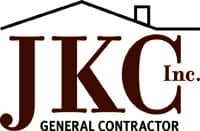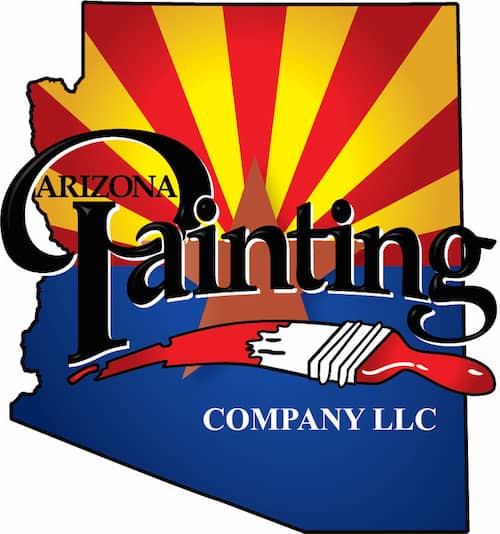Simply put, a heat pump is a device that heats and cools our homes by transferring heat to cooler spaces, making cool spaces warmer, and warm spaces cooler.
You may have one in your home, or your neighbors have one. Fairly common in the warmer climates in Arizona, though they are used in some colder climates, heat pumps are considered more efficient than a traditional furnace and air conditioner due to using their fuel source more effectively. The most common fuel source for a heat pump is electricity.
Why is a heat pump different than a gas heater and air conditioning unit?
The primary difference is how each applies its fuel source to fulfill the goal of heating and cooling. Traditional furnaces use the fuel source to create heat and then distribute that through ductwork. Air conditioning units use a gas-driven engine to drive the compressor, rather than electricity.
In reality, a heat pump’s operations are similar to the air conditioning unit in that they extract heat from the air and send it elsewhere.
How does a heat pump work?
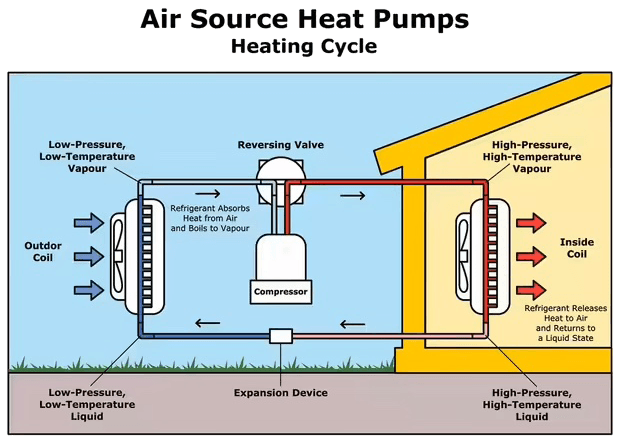
The diagram depicts the basic operation. There are several components to any heat pump. Two key components are the compressor, which compresses the low-temperature vapor collected under pressure (the compressed part) and turns the vapor into a high-temperature vapor dispersed through a coil.
The second important part is the reversing valve. This allows you to choose the “heating your home” or “cooling your home” mode.
Another appliance analogous to the heat pump is your refrigerator. Both apply a similar process, except the heat pump operations can be reversed depending on the season.
Are there different types of heat pumps?
Heat pumps differ slightly in the sources used for gathering heat or where they disperse heat. The most common heat pump systems in Arizona are the air source. This means the heat pump collects heat from the air either inside your home in the cooling mode or from outside the home in the heating mode.
There are generally two air source types.
- Air Source Ducted. This method distributes either heated or cooled air through ducts like the traditional furnace and air conditioner.
- Air Source Unducted. Also known as a mini-split, this device transfers air directly from the outside to an interior space. A common use is in a room not connected to the home’s system, such as a she shed or man cave in a separate building.
Here is an appropriate spot to explain “split” vs. “packaged” systems.
- Split systems have coils both inside and outside the conditioned space.
- Packaged systems have both coils outside and transfer the conditioned air via a duct system.
Geothermal sources, such as the earth or water, are another source that can be tapped into as a place to get heat from or disperse it. This type is not as common in Arizona for a couple of reasons.
- Heat sources from the ground are expensive to install.
- Water sources. This is, after all, Arizona!
Selecting a Heat Pump
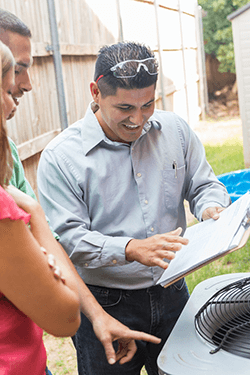 Begin by engaging a Rosie on the House Certified Partner knowledgeable about system brands and applications based on your needs. Unless you have a professional grasp on HVAC systems, a professional is where you need to start. There are many different models, sizes, and accessories to wade through.
Begin by engaging a Rosie on the House Certified Partner knowledgeable about system brands and applications based on your needs. Unless you have a professional grasp on HVAC systems, a professional is where you need to start. There are many different models, sizes, and accessories to wade through.
Generally, though, an energy rating is applied to heat pumps as well as the more traditional furnaces and air conditioners. Here are two.
- HSPF – Heating Seasonal Performance Factor | This number is calculated by taking the heat used in a season, measured in BTUs, and divided by the electrical energy used, measured in watt-hours. The higher the number, the more efficient the unit. This information is most relevant in colder climates where heating is a primary concern.
- SEER – Seasonal Energy Efficiency Rating | As with the HSPF, the system’s output is divided by the energy input to determine the rating. This rating is applied to air conditioning systems. As with the heating rating, the higher the number, the better the system. This rating is most relevant in warmer climates where cooling is more prominent.
Higher efficiency ratings usually mean a more expensive system. Check with your local building jurisdiction to determine if a minimum rating is required. This is typical in jurisdictions that have adopted the energy code.
Are there upgrades?
Always.
We looked at some of the more common upgrades and features often associated with heat pumps. These are designed primarily to increase energy efficiency and ultimately, your comfort and pocketbook. Common upgrades include:
- 2-Speed Compressors. This affords the compressor to work at a lower capacity when conditions warrant. The start/stop of a compressor wears out the most. This feature lessens the wear and tear, thus leading to a longer life.
- Variable Speed Fans. Inside and outside fans have this feature that operates at a lower capacity when full speed is not called for, lenghting their useful life.
Other features are less common, such as recouping heat recovered from the cooling mode to heat water. A nice touch, but pricey.
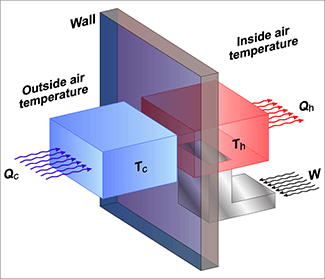 Can heat pumps work in very cold temperatures?
Can heat pumps work in very cold temperatures?
You may have heard over the years that heat pumps are not efficient sources of heat in really cold areas such as the White Mountains or Flagstaff.
In the past, this was mostly true. Today, heat pumps can work in temperatures as cold as minus five degrees Fahrenheit or even colder. The efficiency drops in older models. With current technological advancements, those efficiency ratings have increased considerably.
For further information, take a look at this Consumer Reports article.
So, the simple word on heat pumps is they have become more efficient and generally have lower operating costs than more traditional systems.
###
PODCAST
A heat pump is considered more efficient than traditional ways to heat and cool your space. We go over how it functions and other things you should know. Homeowner questions about a leaky chimney flu, whole home humidifier, recirculating pumps and more!
Podcast Archive With Expanded Content and Resources
PHOTO CREDIT
- Energy.gov
- Shutterstock









